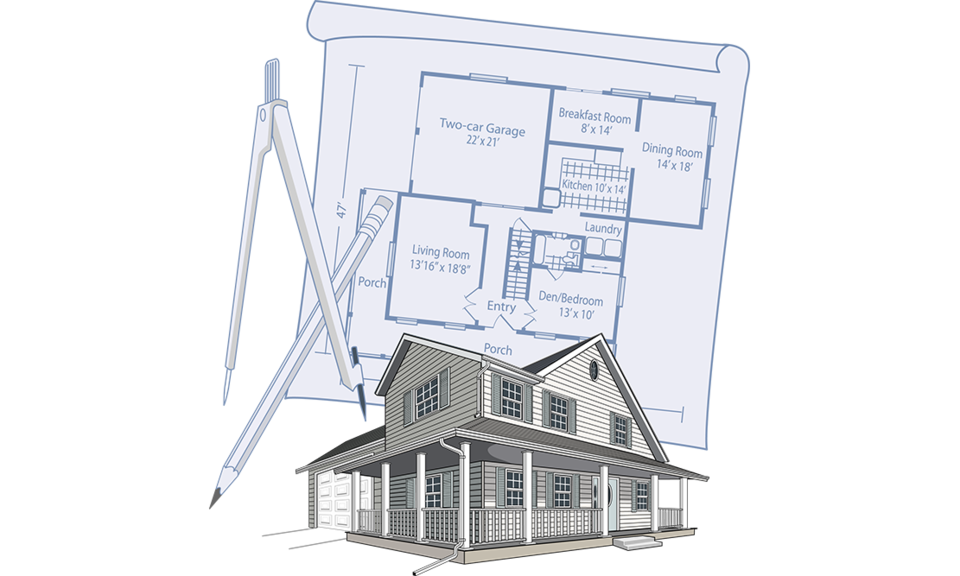Opponents of Fairfax County’s Modernized Zoning Ordinance, ubiquitously abbreviated to “zMOD,” were elated in March when the Virginia Supreme Court nullified the ordinance.
But critics of the ordinance didn’t get to savor their victory for long.
The Fairfax County Board of Supervisors on May 9 was expected to reauthorize zMOD, which the board originally adopted on March 23, 2021, after a four-year process to rewrite a zoning code last modified in 1978.
The ordinance – which passed on a 7-3 vote with Supervisors Walter Alcorn, Patrick Herrity and Daniel Storck voting nay – took effect on July 1, 2021. Key provisions of the ordinance included:
• Administrative approval of interior accessory-living units (ALUs) instead of by special permits issued by the county’s Board of Zoning Appeals.
• Clarifications of rules regarding home-based businesses, including activities allowed, hours of operation and limitations on the storage, use or generation of hazardous materials, explosives and inflammable or combustible liquids.
• Height limits for flag poles, with the low end being 25 feet tall on lots with single-family or manufactured homes.
• New rules to allow inoperative motor vehicles on residential properties only if they are screened completely from view or kept in fully enclosed structures.
The Virginia Supreme Court, however, voided the ordinance on the grounds that – because supervisors had approved it at an electronic meeting held during the pandemic – this violated open-meeting provisions of the Virginia Freedom of Information Act.
County officials and their lawyers contended that the action was permissible under the rules in existence at the time, and a Circuit Court judge agreed with their position. But the Supreme Court justices, who have the final say, did not.
Since that ruling, county officials have handled zoning matters under the previously existing rules. But it was only a matter of time before the matter came before the Board of Supervisors again.
The Fairfax County Planning Commission on May 3 voted unanimously after a nearly five-hour-long hearing to recommend that supervisors reauthorize zMOD.
“The expectations are that the county will reinstate zMOD without a change and that would obviate the need to reconsider applications that were approved during the past year, when zMOD in check,” said Robert Perito, who chairs the McLean Citizens Association’s (MCA) Planning and Zoning Committee.
In an April 28 letter sent to Planning Commission members and county supervisors, MCA president Scott Spitzer reiterated reservations about zMOD expressed in a resolution the group passed in January 2021.
“We have serious concerns about certain aspects of the proposal, most especially the need to retain the current age/disability restrictions on accessory-living units (ALUs) and various protective restrictions on home-based businesses,” Spitzer wrote.
MCA sought retention of age and/or disability requirements for accessory-living units because not doing so could have significant impacts on county schools and public infrastructure, as well as planning processes for both, the letter read.
On balance, however, the proposed zMOD changes were a net positive for the county and align with the Board of Supervisors’ strategic vision, Spitzer wrote.
“We are particularly pleased that zMOD recommends retention of the special-permit process,” according to his letter. “We believe this helps preserve valuable public notice and resident input, and more than offsets the attendant additional time and effort that is involved.”
Among the zMOD critics was former Planning Commission member Julie Strandlie (Mason District).
“The ALU changes do not just amount to allowing a kitchen,” she said. “ALUs, among other impacts, are accessed through side and back entrances, including newly dug basement steps. This is a huge impact when houses are built within 2- or 3-[foot] lot lines.”
The impact of the ordinance’s ALU provisions already has been seen in new housing development, Strandlie said.
“The zMOD result on ALUs and home-based businesses missed the mark,” she said. “It does not incorporate community concerns and avoided a significant opportunity to make a real difference in housing policy. If we want to successfully expand housing opportunities, we need community input, involvement and buy-in.”
County planning staff said current zMOD policies led to a modest increase in the number of applications received. Officials have not received any complaints about approved ALUs. Three complaints led to new ALU applications, one of which the county denied, they said.
Planning Commission member Candice Bennett (At-Large) moved to recommend supervisors reauthorize zMOD.
Commission member John Ulfelder (Dranesville District) said the matter put members “between a rock and a hard place.”
“The county, however, needs to go forward with its land-use business and it needs to clear up the problem that has occurred because of the Supreme Court decision,” Ulfelder said. “The readoption of zMod is initially the right step.”
The Planning Commission also approved a follow-on motion recommending that supervisors direct county staff discuss editorial revisions, data centers and Planned Residential Community plans during the Zoning Ordinance Work Program at the Planning Commission’s Land-Use Process Review Committee on June 8 and by the Board of Supervisors’ Land-Use Policy Committee on July 18.
Planning Commission member Peter Murphy Jr., who continues to represent Springfield District but is no longer the body’s long-serving chairman, thanked those who spoke at the hearing and said their testimony had not fallen on deaf ears.
“One of the things we always strive for on the commission is citizen participation in the process,” Murphy said. “We’re going to continue looking at the issues you resurrected.”



